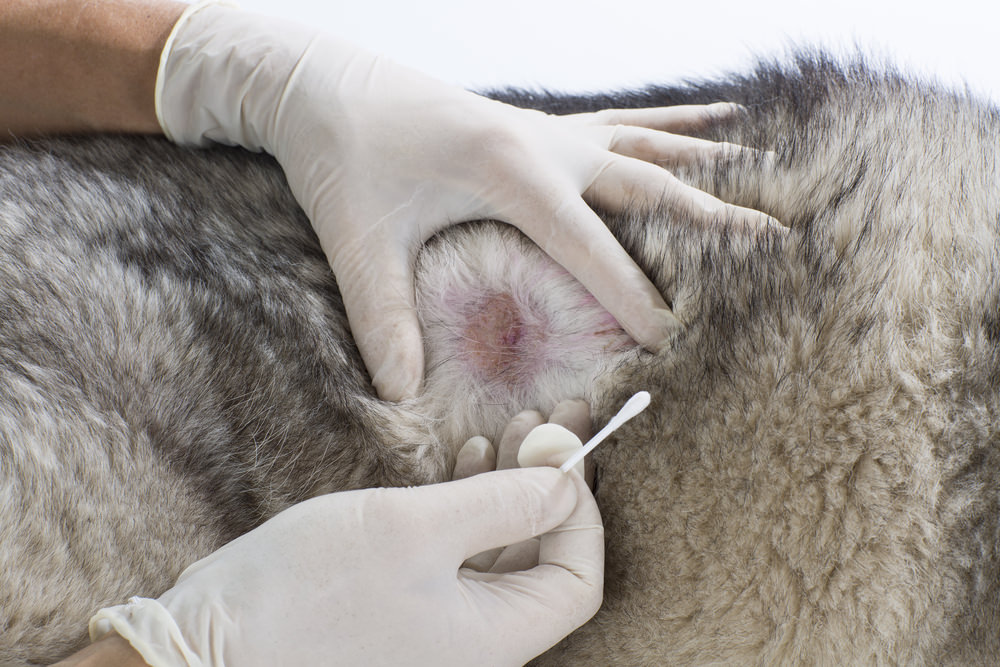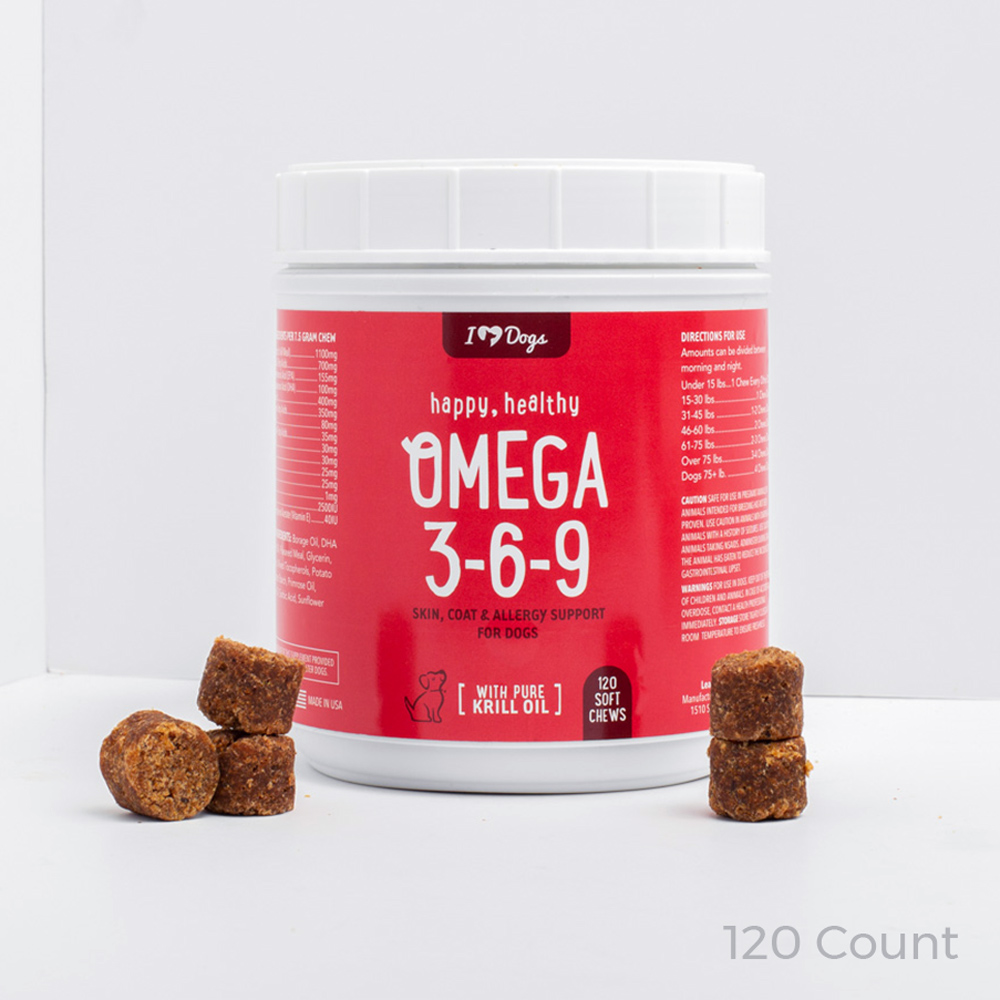I love my dogs. They’re family.
People who don’t have dogs would ask, “Don’t you mean ‘like’ family?” But you know what I mean. Family.
And like family members, we want our pups to be healthy and happy, so when one of my dogs began scratching uncontrollably and biting on its legs, I got worried. So just like a child, off we went to the doctor’s office. Unlike my kids, my dog didn’t once ask if they would be getting a shot. Anyway, after a brief exam, my vet said it wasn’t anything serious and asked if I was giving my dogs an Omega-3 supplement. She started explaining the benefits, and I began to wonder why I wasn’t. I take one. Why not my dogs?
Common Signs of Omega-3 Deficiency
• Hair loss/excessive shedding
• Dry, flakey skin
• Ear infections
• Hot spots
• Excessive itching
• Coat issues
Most people don’t realize the importance of an Omega-3 supplement. More importantly, they don’t know common indicators that their dog has a deficiency. Those who do know how important Omega-3’s are think that their dogs are getting enough in the food they eat. However, did you know that Omega-3 fatty acids are susceptible to heat, and when dog food is cooked or processed the extreme heat renders most Omega’s biologically unavailable. That means your dog is not receiving any of the benefits – and could be suffering because of it.

There’s a reason they are called essential fatty acids. Just like in humans, they are vital to the health of our dogs. Fortunately, there are ways to make sure your furry friend gets all the Omega-3’s he needs.
- Raw diets – unprocessed, raw foods, such as salmon, are loaded with Omega-3’s. While some vets and dogs owners love this healthy approach to feeding, there are some questions about whether or not the nutrients are balanced. While this approach appears beneficial, it’s difficult to make sure your dog is getting all the vitamins and minerals needed for optimal health. Not to mention, this approach can be very costly.
- Omega pills – These can be very helpful when trying to ensure a healthy amount of Omega-3’s in your dog’s diet. However, not all supplements are created equal. Some supplements derive the majority of their Omega’s from larger fish, such as salmon. Here’s the problem – because salmon and other Omega-3-rich fish are higher up the food chain, they are prone to having higher levels of mercury, lead and other toxins. Not good. Oh, and I forgot to mention the smell. I tried hiding these potent pills in the kibble. LOL! I’m guessing your dogs are like mine. They could sniff out that stench if I dipped it in chocolate, wrapped it in bacon, fried it and served it with a ranch dipping sauce. Not happening.
- Omega soft chews – Dogs seem to enjoy these more than the pills that need to be swallowed. Just like the pills, however, you still need to be careful about the ingredients. That’s why I’d recommend Omega-3-6-9 Select soft chews. I like these because they’re made from krill, which have some the highest concentrations of Omega’s of any marine animal. Also, because these are at the bottom of the food chain, with a shorter lifespan, they don’t contain the high level of toxins like fish can. Plus, each purchase of Omega-3-6-9 Select chews provides meals for 14 shelter dogs. Plus they are delicious. I haven’t tried one, but my dogs seem to like the taste. I’ll leave it up to you to confirm this for yourselves.
Do What’s Best for Your Dog!
The bottom line…we all want what’s best for our dogs. What works for me may not work for you. However, making sure our dogs live long healthy, happy lives is all that matters. Ensuring your dog gets a healthy dose of Omega-3 fatty acids is a key piece of the puzzle.
These statements have not been evaluated by the Food and Drug Administration. This product is not intended to diagnose, treat, cure, or prevent any disease. The information on this website is not intended to replace a one-on-one relationship with a qualified health care professional.


 Toledo, United States.
Toledo, United States.